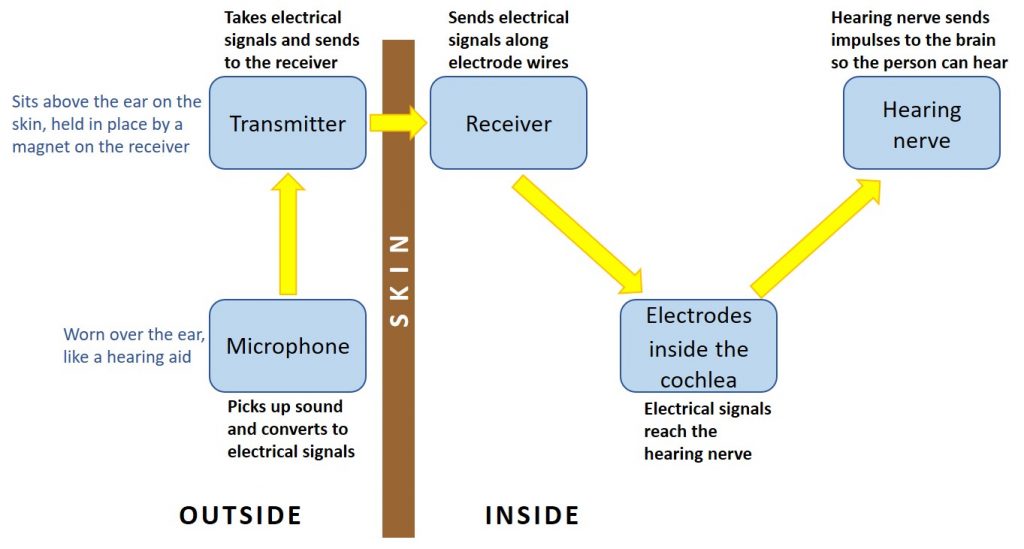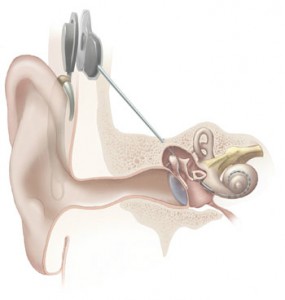February 25, 2021, by Adele Horobin
International Cochlear Implant Day
Cochlear implants can help even the most profoundly deafened people to hear. They capture sounds and digitise them – turn them into electrical signals – before relaying these signals directly to the inner ear, or the cochlea. Here, the signals excite the hearing nerve which then sends impulses to the brain so the person can hear.

Diagram showing the working parts of the cochlear implant and the path that sound takes for the person to hear
Nottingham has played an important role in the history of cochlear implantation in the UK. The Nottingham Auditory Implant Programme was the first to provide a cochlear implant to a deaf child in the UK. Since that time, Nottingham’s implant programme has grown to be one of the largest in the UK and their highly-experienced team provides implantation services to both children and adults.

Cochlear implant fitted on the ear
The widespread use of cochlear implants throughout the UK was supported by evidence gathered by scientists at the Medical Research Council Institute of Hearing Research in Nottingham during the 1990s and early 2000s. Their research demonstrated that cochlear implantation is a cost-effective use of our limited NHS resources.
Nottingham continues to be at the forefront of cochlear implant research. Professor Douglas Hartley, Objective Measures Lead for the NIHR Nottingham Biomedical Research Centre Hearing theme and Consultant ENT surgeon at Nottingham, is leading on a ground-breaking project using cochlear implants to measure the hearing health of patients. This is being done in collaboration with cochlear implant manufacturer Advanced Bionics and Rinri Therapeutics.

Professor Douglas Hartley
In the project, volunteers who have recently been implanted with a device from Advanced Bionics use a cochlear implant processor linking the implant within their ear and a custom-build computer known as the AIM tablet, developed by Advanced Bionics.
Professor Hartley said: “Rather than using cochlear implants in the conventional way to stimulate hearing, we are using them as a recording device in this trial.
“We will be using the implants to measure inflammatory responses, along with the health of hair and nerve cells, within the inner ear. This opens new doors for novel curative therapies for hearing loss, either adjunct to cochlear implantation or as stand-alone interventions.”
Funded by a Government UK Research and Innovation Innovate UK grant, more details of the study can be found on our Nottingham Biomedical Research Centre website.
More exciting projects are to come, including a large clinical trial comparing a cochlear implant with hearing aids for adults with severe to profound deafness, who currently just miss out on being eligible for cochlear implantation on the NHS. Watch this space!
No comments yet, fill out a comment to be the first

Leave a Reply